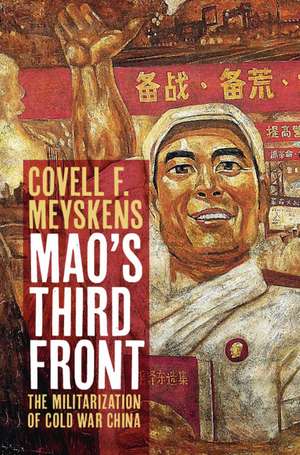Mao's Third Front: The Militarization of Cold War China
Autor Covell F. Meyskensen Limba Engleză Hardback – 13 mai 2020
Preț: 312.46 lei
Nou
Puncte Express: 469
Preț estimativ în valută:
59.80€ • 61.77$ • 49.77£
59.80€ • 61.77$ • 49.77£
Carte tipărită la comandă
Livrare economică 25 martie-08 aprilie
Preluare comenzi: 021 569.72.76
Specificații
ISBN-13: 9781108489553
ISBN-10: 1108489559
Pagini: 292
Dimensiuni: 160 x 236 x 18 mm
Greutate: 0.59 kg
Editura: Cambridge University Press
Colecția Cambridge University Press
Locul publicării:Cambridge, United Kingdom
ISBN-10: 1108489559
Pagini: 292
Dimensiuni: 160 x 236 x 18 mm
Greutate: 0.59 kg
Editura: Cambridge University Press
Colecția Cambridge University Press
Locul publicării:Cambridge, United Kingdom
Cuprins
Introduction; 1. The coming of the third front campaign; 2. Good people and good horses go to the third front; 3.Concentrating forces to wage wars of annihilation; 4.Produce first and consume later; 5.Industrial development amid cold war insecurity; Epilogue. The demilitarization of chinese socialism; Appendix. Third front demographics
Recenzii
'… the Third Front still has potential for further research and this book has laid the groundwork for future efforts.' Youngjune Chung, Pacific Affairs
Notă biografică
Descriere
An examination of how economic development and everyday life intersected with the temperature of Cold War geopolitics in Mao's China.
